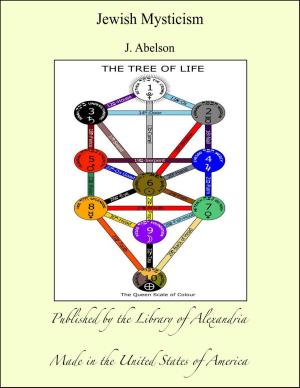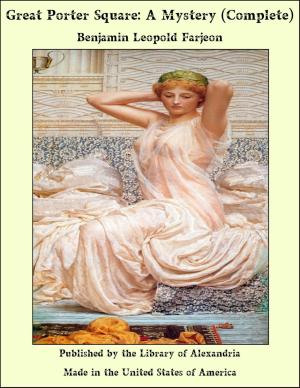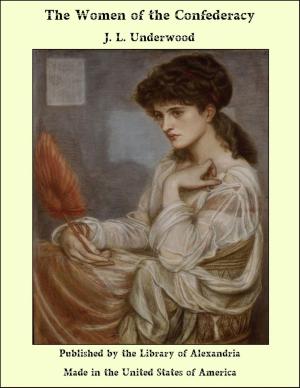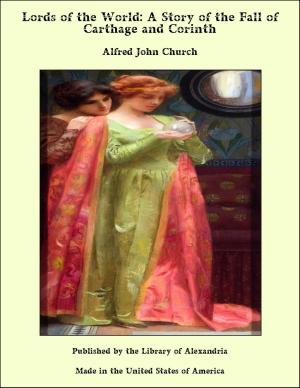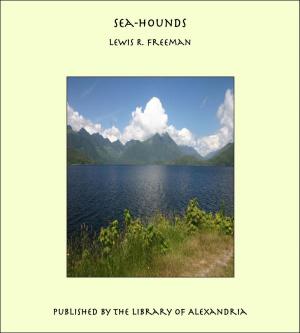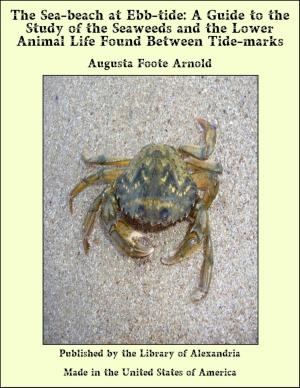| Author: | George MacDonald | ISBN: | 9781465550927 |
| Publisher: | Library of Alexandria | Publication: | July 29, 2009 |
| Imprint: | Library of Alexandria | Language: | English |
| Author: | George MacDonald |
| ISBN: | 9781465550927 |
| Publisher: | Library of Alexandria |
| Publication: | July 29, 2009 |
| Imprint: | Library of Alexandria |
| Language: | English |
A great billowy waste of mountains lay beyond him, amongst which played the shadow at their games of hide and seek—graciously merry in the eyes of the happy man, but sadly solemn in the eyes of him in whose heart the dreary thoughts of the past are at a like game. Behind Donal lay a world of dreams into which he dared not turn and look, yet from which he could scarce avert his eyes. He was nearing the foot of the hill when he stumbled and almost fell, but recovered himself with the agility of a mountaineer, and the unpleasant knowledge that the sole of one of his shoes was all but off. Never had he left home for college that his father had not made personal inspection of his shoes to see that they were fit for the journey, but on this departure they had been forgotten. He sat down and took off the failing equipment. It was too far gone to do anything temporary with it; and of discomforts a loose sole to one's shoe in walking is of the worst. The only thing was to take off the other shoe and both stockings and go barefoot. He tied all together with a piece of string, made them fast to his deerskin knapsack, and resumed his walk. The thing did not trouble him much. To have what we want is riches, but to be able to do without is power. To have shoes is a good thing; to be able to walk without them is a better. But it was long since Donal had walked barefoot, and he found his feet like his shoe, weaker in the sole than was pleasant. "It's time," he said to himself, when he found he was stepping gingerly, "I ga'e my feet a turn at the auld accomplishment. It's a pity to grow nae so fit for onything suner nor ye need. I wad like to lie doon at last wi' hard soles!" He had set out before the sun was up, for he would not be met by friends or acquaintances. Avoiding the well-known farmhouses and occasional village, he took his way up the river, and about noon came to a hamlet where no one knew him—a cluster of straw-roofed cottages, low and white, with two little windows each. He walked straight through it not meaning to stop; but, spying in front of the last cottage a rough stone seat under a low, widespreading elder tree, was tempted to sit down and rest a little. The day was now hot, and the shadow of the tree inviting
A great billowy waste of mountains lay beyond him, amongst which played the shadow at their games of hide and seek—graciously merry in the eyes of the happy man, but sadly solemn in the eyes of him in whose heart the dreary thoughts of the past are at a like game. Behind Donal lay a world of dreams into which he dared not turn and look, yet from which he could scarce avert his eyes. He was nearing the foot of the hill when he stumbled and almost fell, but recovered himself with the agility of a mountaineer, and the unpleasant knowledge that the sole of one of his shoes was all but off. Never had he left home for college that his father had not made personal inspection of his shoes to see that they were fit for the journey, but on this departure they had been forgotten. He sat down and took off the failing equipment. It was too far gone to do anything temporary with it; and of discomforts a loose sole to one's shoe in walking is of the worst. The only thing was to take off the other shoe and both stockings and go barefoot. He tied all together with a piece of string, made them fast to his deerskin knapsack, and resumed his walk. The thing did not trouble him much. To have what we want is riches, but to be able to do without is power. To have shoes is a good thing; to be able to walk without them is a better. But it was long since Donal had walked barefoot, and he found his feet like his shoe, weaker in the sole than was pleasant. "It's time," he said to himself, when he found he was stepping gingerly, "I ga'e my feet a turn at the auld accomplishment. It's a pity to grow nae so fit for onything suner nor ye need. I wad like to lie doon at last wi' hard soles!" He had set out before the sun was up, for he would not be met by friends or acquaintances. Avoiding the well-known farmhouses and occasional village, he took his way up the river, and about noon came to a hamlet where no one knew him—a cluster of straw-roofed cottages, low and white, with two little windows each. He walked straight through it not meaning to stop; but, spying in front of the last cottage a rough stone seat under a low, widespreading elder tree, was tempted to sit down and rest a little. The day was now hot, and the shadow of the tree inviting





